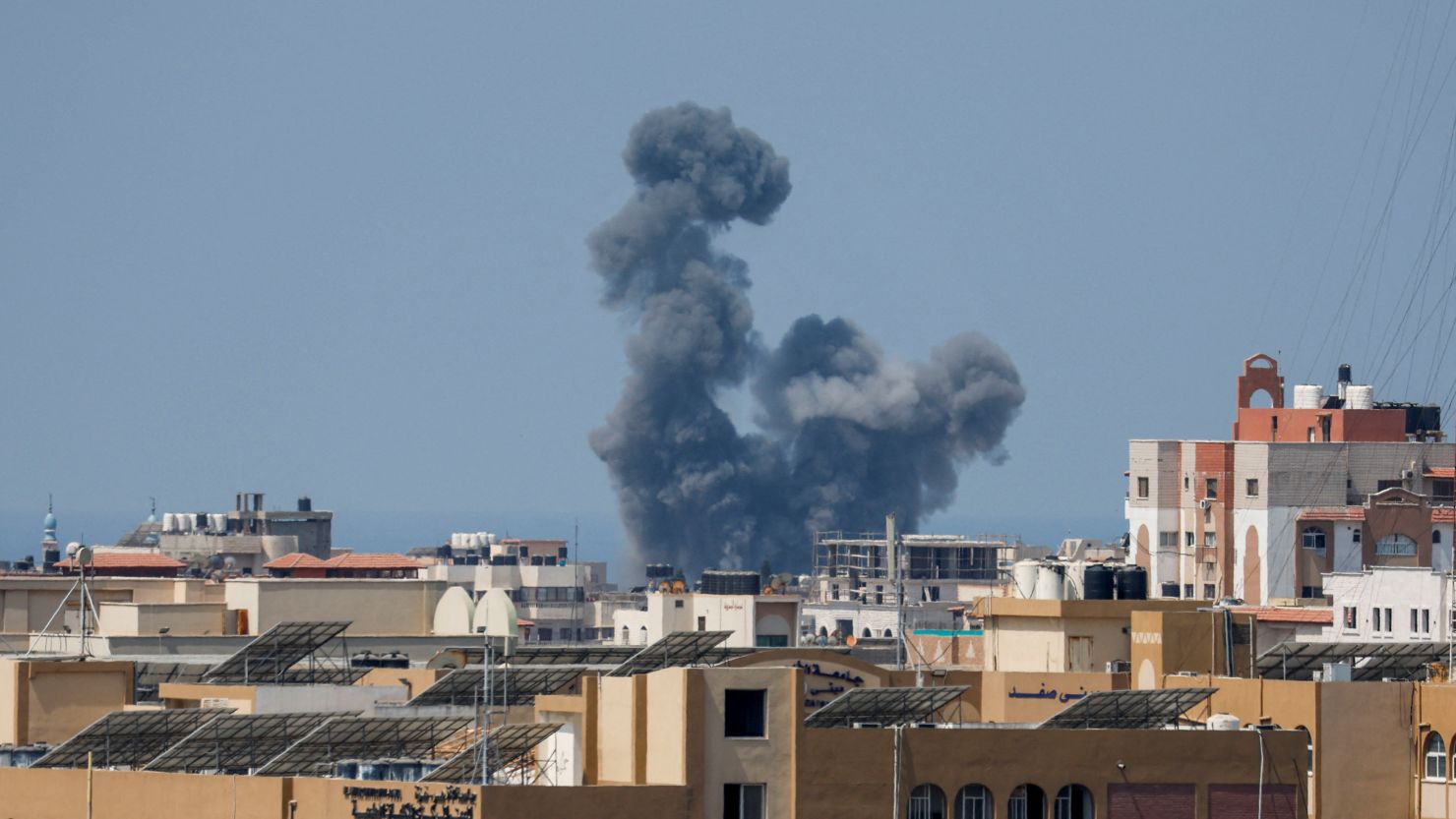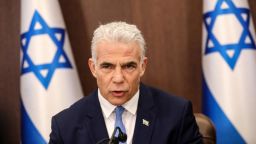Palestinian militants launched rockets toward Jerusalem on Sunday, after Israeli airstrikes in the Gaza Strip overnight killed a senior militant commander – the second since Israel’s operation against Islamic Jihad began. The response from the Iran-backed group marked another escalation in a weekend of violence that has left dozens of people dead in Gaza and sent thousands of Israelis scrambling for shelters.
Overnight, Khaled Mansour, a leader of Islamic Jihad’s operations in southern Gaza, was killed in an airstrike on a building in Rafah, close to Egypt’s border, according to Israeli officials. Israel said that Mansour was responsible for a number of terror attacks against Israelis.
He is the second Islamic Jihad commander to be killed since Friday, when Israel launched a surprise operation, “Breaking Dawn,” triggering the worst bout of violence between Israeli and Palestinian militants since a brief war last May. On the same day, Israel killed Tayseer Al-Jabari, the head of the group’s operations in the north of Gaza, in what it described a “pre-emptive” strike.
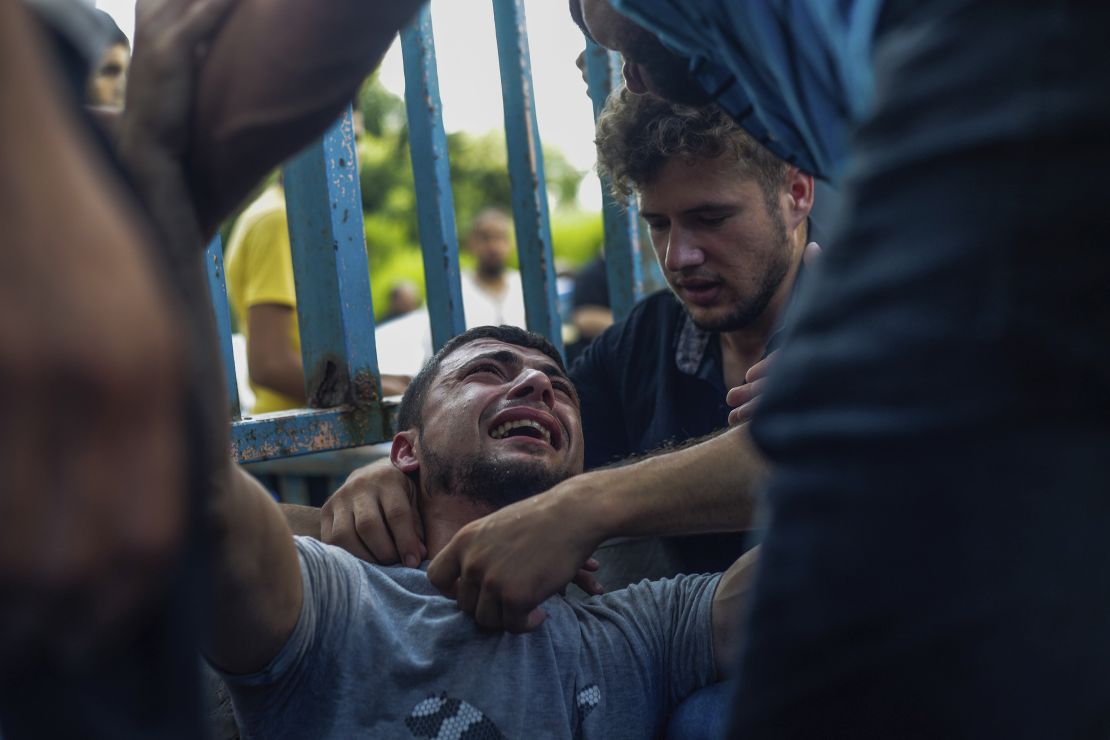
Since then, the Israeli military says it has hit dozens of additional targets including rocket launching sites, weapons manufacturing facilities and a tunnel it said was being built to allow militants to infiltrate Israel and carry out attacks. The Israeli military has also extended its campaign into the West Bank, detaining about 40 suspected Islamic Jihad militants across the territory in two nights of operations.
Islamic Jihad, which is the smaller of the two main militant groups in Gaza, has fired more than seven hundred rockets since Friday, according to Israeli officials, mainly launched toward Israeli communities living close to the Gaza Strip, but also firing several longer-range rockets.
About twenty per cent of the launches have landed inside Gaza, an army spokesman told reporters. The Iron Dome aerial defense system, which is deployed against any incoming fire assessed to be a threat to people or buildings, and which intercepted the rockets fired at Jerusalem, is currently operating at a 97% success rate, the spokesman said.
Children among the dead
At least 43 Palestinians have been killed in the escalation, among them 15 children, according to information from the Palestinian Ministry of Health. Israel maintains most of those killed in its airstrikes were militants. For its part, Islamic Jihad has said it will not release the names of its fighters killed until the latest escalation is over.
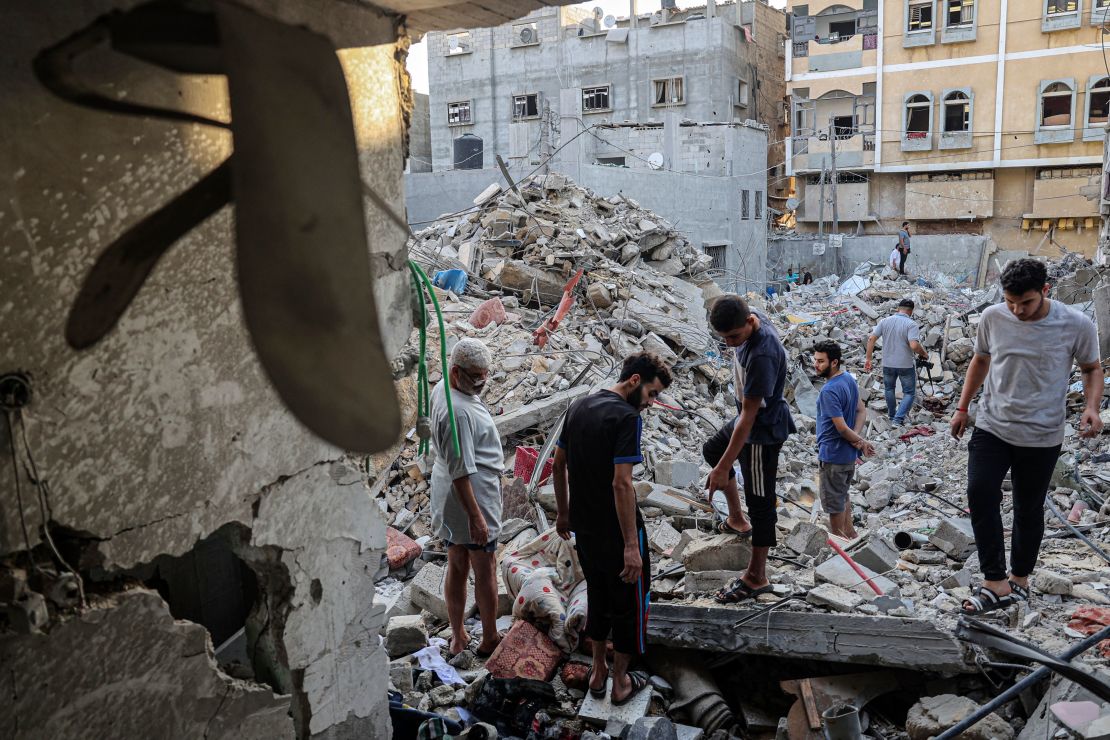
There are also conflicting claims over responsibility for some of the deaths. In one incident on Saturday, four children were among seven people killed in an explosion in Jabaliya in northern Gaza. The Palestinian Health Ministry said the blast was caused by an Israeli air-strike, but Israel rejected the claim blaming errant rocket fire. The Israel Defense Forces released a video showing what it said was the Islamic Jihad rocket apparently suddenly losing power and falling to the ground over a built-up area.
The Palestinian Authority Presidency, which is based in the West Bank and has very limited influence over events in Gaza, has strongly condemned Israel’s military operation and is appealing for a strong response when the UN Security Council holds a special session later to discuss the escalation.
Among the United Nations’ most pressing humanitarian priorities is restoring the supply of fuel to Gaza, the UN’s Office for the Coordination of Humanitarian Affairs (OCHA) told CNN. Stocks are so low that Gaza’s single power plant has been shut down for more than 24 hours, causing drastic cuts to electricity supplies throughout the Strip.
Two water treatment plants and nine pumping stations have been forced to shut down as a result of the electricity shortages, OCHA said, meaning 130,000 cubic meters of dirty water is now flowing directly into the Mediterranean Sea.
The impact is also being felt by Gazan households, which are now receiving an average of three to four hours of electricity per day, down from 16 hours, the Gaza Power Generating Company told CNN.
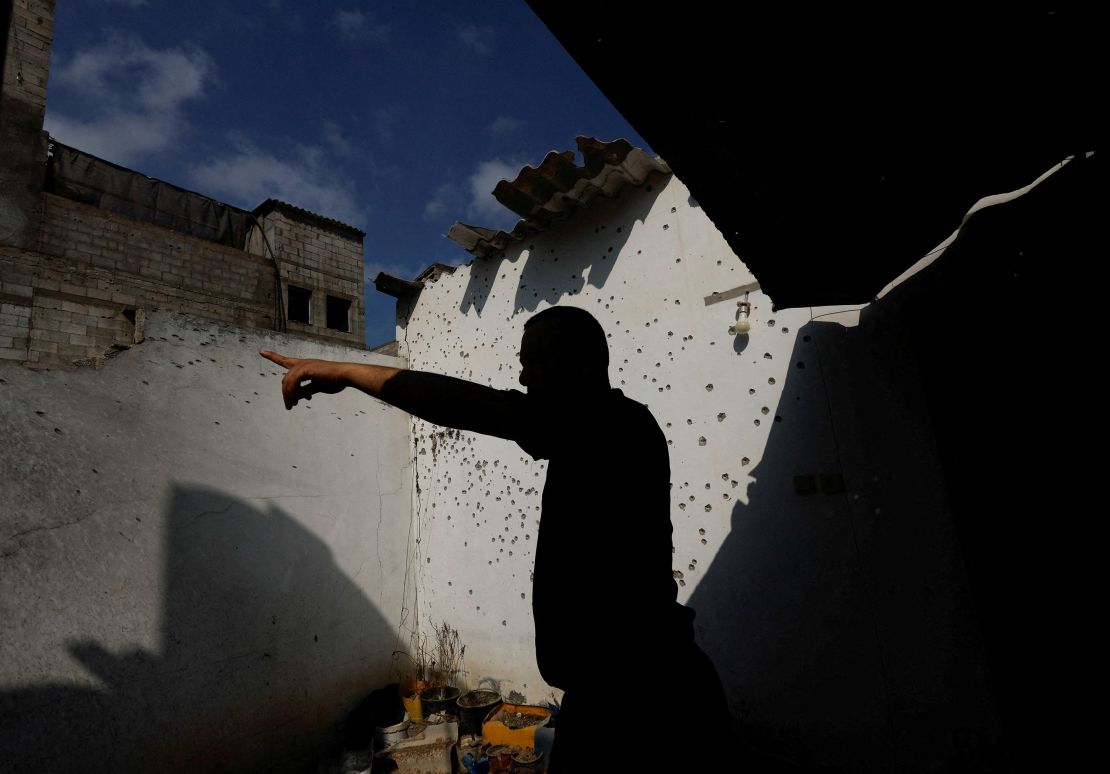
Fuel for the power plant is brought into Gaza by truck through the Kerem Shalom crossing, which was closed by Israel six days ago amid concerns that Islamic Jihad was threatening an attack after an Israeli military operation in the West Bank town of Jenin, where Israeli forces captured one of the group’s senior commanders, Bassam al-Saadi, on Monday night.
The violence is the most serious in the region since the Israeli military and Hamas fought an 11-day war in May 2021.
Hamas, the preeminent Palestinian faction in Gaza, also blamed Israel for the escalation but has been notably restrained in its response overall, stopping short of threatening attacks in retaliation.
The group’s decision to stay out of the fighting has raised hopes that Egyptian mediators might soon be able to restore a ceasefire, and negotiation efforts continued Sunday according to parties involved in the fighting.
“There are talks underway with Egypt to reach a ceasefire,” a Middle Eastern official briefed on the situation told CNN.
A spokesman for Islamic Jihad, Tareq Selmi, told CNN that Egyptian mediators are making the “highest efforts” to restore calm to the Strip. Previous escalations have ended through international efforts led by Egypt, with support from the United Nations and from Qatar.
Islamic Jihad’s leader meets Iranian President
The clash came as the leader of the Islamic Jihad was in Iran, meeting with Iranian President Ebrahim Raisi and other high-ranking officials.
A video obtained by Reuters showed Ziyad al-Nakhalah holding talks with Raisi on Saturday in Tehran, a day after Israel launched its military operation against Islamic Jihad in Gaza.
Al-Nakhalah also spoke on Saturday with the commander of Iran’s Revolutionary Guards, Major General Hossein Salami, who praised “the swift response of the Palestinian Islamic Resistance” to the Israeli military operation, saying it “proves that a new era has begun for the resistance to take power,” according to a report by Iran’s Fars News Agency.
Israel’s Prime Minister Yair Lapid drew attention to Al Nakhalah’s Iran visit when he spoke on Friday about the campaign in Gaza.
“Our fight is not with the people of Gaza. Islamic Jihad is an Iranian proxy, that wants to destroy the State of Israel and kill innocent Israelis. The head of Islamic Jihad, is in Tehran as we speak. We will do whatever it takes to defend our people,” Lapid said.
Ibrahim Dahman in Gaza, Hadas Gold and Elliott Gotkine in Ashdod, Sara Mazloumsaki in Atlanta and Sophie Jeong in Yongin, South Korea contributed to this report.
